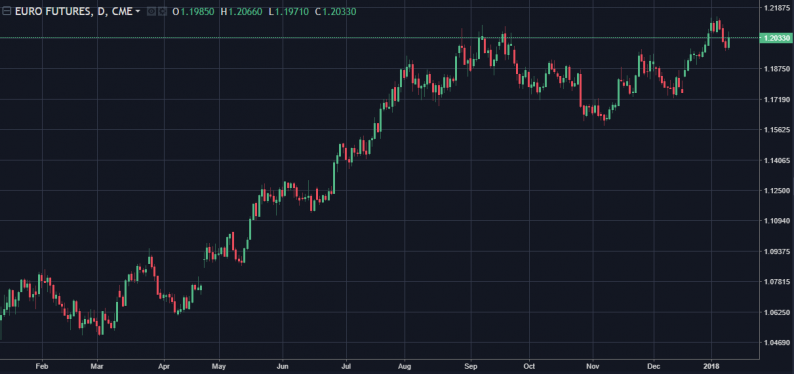In the December ECB meeting, there was no new news. As expected, the MPC left rates unchanged and signaled a continuation of their easing program.
As you recall, in the October meeting, the committee announced a plan to continue implementing the asset purchases until September this year. This January, the asset purchases will be reduced to $30 billion per month. The committee also left options for an extension past September on the table.
Come September, Mario Draghi and the team will find themselves in a dilemma. Do they start the normalization process? If yes, what will be the thinking or scientific background behind it? For sure, in economics, a lot can happen between now and September. However, if status quo remains, Draghi will have a challenge explaining the thinking behind normalization.

Of course, the normalization will not be about inflation. Recent data shows that the Euro area inflation is at 1.5% below the targeted 2%. Recent data from the European Commission showed that consumer inflation target for the next twelve months is at a 4-month low.
Inflation plays a major role in determining the monetary direction of any country. Apart from job creation and ensuring financial stability, keeping inflation in check is perhaps the most important role of central bankers. In theory, central banks should work to ensure that prices rise slowly. A deflation – where prices reduce – is not desirable.
So, what will be the motivation for normalization? Remember, while the Euro area economy is doing well and with business confidence at a 17-year high, some factors like high commodity prices and high property prices could be a hindrance to economic growth.
In addition, there is a challenge of Euro Area being a combination of multiple independently run countries. For example, while the unemployment rate in Germany is currently below 4%, the overall EU unemployment rate in the EU is a massive 9%.
Perhaps, the ECB will start normalization for reasons they are not telling us. My guess is, the motive for normalization – when its not necessary – is all about financial stability. Remember, central banks never forecast recessions and the IMF does not issue notices of a country’s odds of defaulting.













Leave A Comment